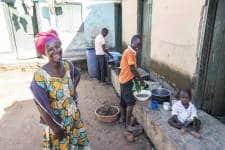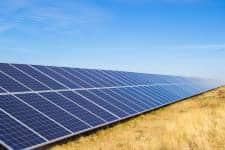The story
The East African Crude Oil Pipeline (EACOP) will devastate communities in Uganda and Tanzania and bring the world closer to climate disaster. Thanks to the international mobilization, 24 banks have already pulled out of its financing.
TotalEnergies is the major oil company behind EACOP. However, facing low levels of interest from lenders, Total needs support from its financial advisors such as Standard Bank and SMBC. They are now looking for allies such as Standard Chartered that has not announced withdrawing from the project.
These 3 banks have signed the Equator’s Principles, a baseline framework that ensures financial lending brings a positive impact on the people and the environment. EACOP does not respect it.
TotalEnergies wants to secure all EACOP financing before the end of March 2023. To stop EACOP from damaging the environment and displacing local communities, we are mobilizing online, on the street, and in front of banks’ offices backing EACOP around the world to call our their hypocrisy and ask: “Which side are you on?”






